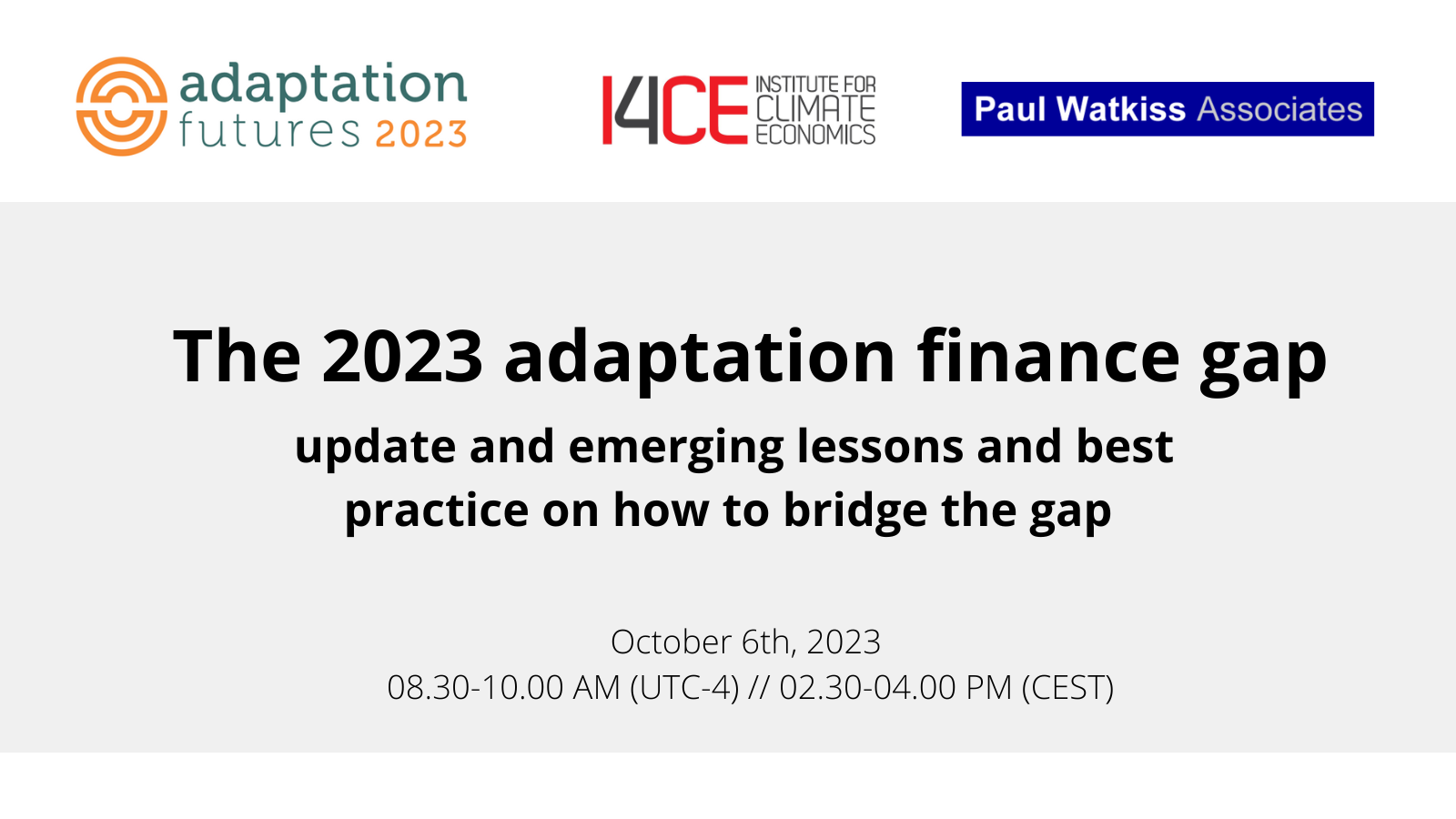The 2023 adaptation finance gap update and emerging lessons and best practice on how to bridge the gap
Webinars - By : Vivian DEPOUES, PhD
I4CE at Adaptation Futures 2023 (October 2-6, 2023)
Held every two years, Adaptation Futures is the leading international conference dedicated to adaptation to climate change. It brings together researchers, decision-makers, practitioners and companies working on adaptation from all over the world. In 2023, the United Nations Environment Programme (UNEP), in partnership with Ouranos and the Government of Canada, is organizing the 7th edition in Montreal.
I4CE will be present throughout the week, with two highlights co-organized with our partners:
- the 2023 adaptation finance gap update and emerging lessons and best practice on how to bridge the gap;
- “South”, the new frontiers of adaptation in the “North”? see more informations about this event;
Date: October 6th, 2023
Time: 08.30-10.00 AM (UTC-4) // 02.30-04.00 PM (CEST)
Format : in person and online
Partners : Paul Watkiss Associates
Description of the event
This proposed knowledge sharing session presented the new findings of the Adaptation Finance Gap analysis 2023. The format was based on a series of short presentations, followed by an interactive discussion session on how to bridge the gap. The adaptation finance gap is defined as the difference between the estimated costs of meeting a given adaptation target and the amount of finance available (UNEP, 2014).
Based on a combination of global and national studies, the UNEP adaptation gap report (AGR) estimated the annual costs / financial needs for adaptation in developing countries at between US$ 160 billion and US$ 340 billion by 2030 (UNEP, 2016).
With increasing levels of climate change, this annual cost was projected to increase to between US$ 315 billion and US$ 565 billion by 2050. The most recent gap report (UNEP, 2022) suggests that for developing countries, the estimated adaptation costs – and likely adaptation financing needs – could be five to 10 times greater than current international adaptation finance flows (as reported by OECD, 2022).
These adaptation cost estimates were produced in 2015. Much has changed since then, with improved academic studies and country submissions. A major update of the costs of adaptation is being undertaken in 2023. This research will update the estimates of the costs of adaptation, the estimated financing needs from developing countries, and the levels of finance flows. This will be used to estimate the size of the adaptation finance gap. This new gap estimate has extremely high relevance for the new collective, quantified goal on climate finance.
This session presented the headline research findings from the updated AGR 2023 study. It presented and discussed the updated estimates, providing details of various evidence lines (costs of adaptation, country financial needs from NDCs and NAPs, adaptation finance flows), and present and discussed the implications of these new estimates for the adaptation finance gap.
This session discussed how different countries and organizations are tackling this challenge. We presented the work developed in France as part of our most recent projects (Quanti-Adapt et Economic implications of adaptation pathways).
Speakers:
- Vivian Dépoues (I4CE) ;
- Paul Watkiss and Blanche Butera (Paul Watkiss Associates) ;
- Henry Neufeldt (PNUE) ;
- Dipesh Chapagain (Oxfam) ;
- Georgia Savvidouu (Chalmers University of Technology).
